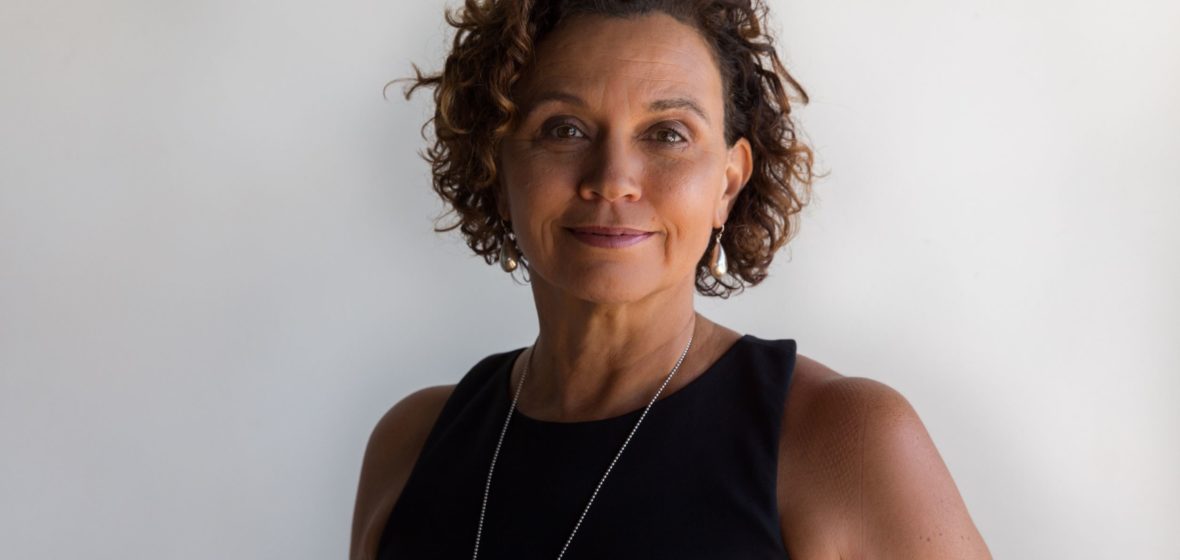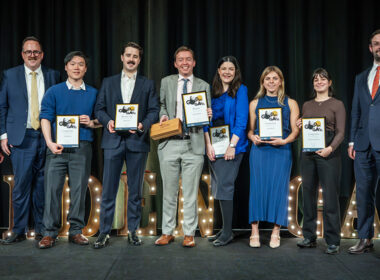Robynne Quiggin is a Wiradjuri lawyer with 20 years of experience working in human rights, financial services, and public policy. She is a professor at the University of Technology Sydney, Chair of the NSW Aboriginal Housing Office and Chair of the Human Rights Law Centre. She was previously Deputy Chair of the Bangarra Dance Theatre and Deputy Aboriginal and Torres Strait Islander Social Justice Commissioner. Quiggin discusses her passion for justice and change.
What made you want to pursue law?
I was quite idealistic when I was younger and probably still am today. I saw real inequality and unfairness in the world. Law appeared to be one of the most useful skills I could gain to make an impact and make it fairer for First Nations people. I think I probably underestimated the importance of economics and business, which is where I’ve ended up and I find that really fascinating. But essentially, I wanted to make change. The things that I saw were racism, a lack of representation of Aboriginal people and difficulties with legal representations. I saw law as a vehicle to making positive change.
What does this year’s NAIDOC theme ‘Get Up! Stand Up! Show Up!’ mean to you?
The theme this year is really a call to action around making change, for justice for First Nations people. The NAIDOC committee have articulated that, saying that it’s time to see systemic and structural change and reform. They’re calling that out, I guess, to Aboriginal people but more importantly, to the broader community to say that it’s time for us to really come together and strive for change in this nation state.
How can non-Indigenous people champion institutional, structural, and cooperative change?
I think one of the most important things is to listen to what Aboriginal and Torres Strait Islander people are saying. It’s about making connections and relationships with the traditional owners in the area in which you work and understanding the context of your location and your industry. Ask Aboriginal people, ‘what can we most usefully do to support the work that you’re driving at present’? Also consider, what does an organisation want to be recognised for in terms of its values? And which values is it really prepared to put its hand up for and work with Aboriginal and Torres Strait Islander people towards?
What would you like to see in the workplace to authentically recognise First Nations people?
I think the first question to ask yourself is do you have a culturally safe workplace for Indigenous people? And if you don’t know the answer to that, then that’s an answer in itself. It’s about working towards ensuring you create a culturally safe environment for all people. There also needs to be pathways to either bring in Indigenous leaders to guide the organisation or have pathways for Indigenous people within the organisation to reach executive positions. Having Indigenous people in leadership roles should be business as usual. Truth telling about the nation in which we live also needs to become part of the story of the business. This is Aboriginal land, always was always will be. Wherever your office is located is Aboriginal land.
With the support of the new Government, what are your thoughts on the Uluru Statement from the Heart?
The Uluru Statement is a big conversation that has been had with some First Nations people. There’s still more conversation to be had around what the voice might look like. It needs to be a model that will get real buy-in from First Nations people. There’s also work to take that out to the broader community and frame a question for the Constitution. As much as we want to stay focused on outcomes, there is still work to be done. We are thinking about issues on behalf of all the generations that have come before and all of the generations that will come after. That is a big responsibility, and we need to get it right. Conflict and disputes are part of having a healthy conversation. We shouldn’t shy away from the fact that we don’t all have the same views. But we do need an inclusive process that allows all First Nations people to be heard.
What are you most proud of?
I really struggle with this question. I would have to turn it on its head and answer as to what I’m most grateful for in a collective sense. I’ve been really blessed with a love of learning and a deep curiosity and passion for good work that benefits people. What I’ve learned out of that, is that everything you do, no matter what it is, has to be underpinned by kindness, respect, and generosity. These are Wiradjuri principles.




